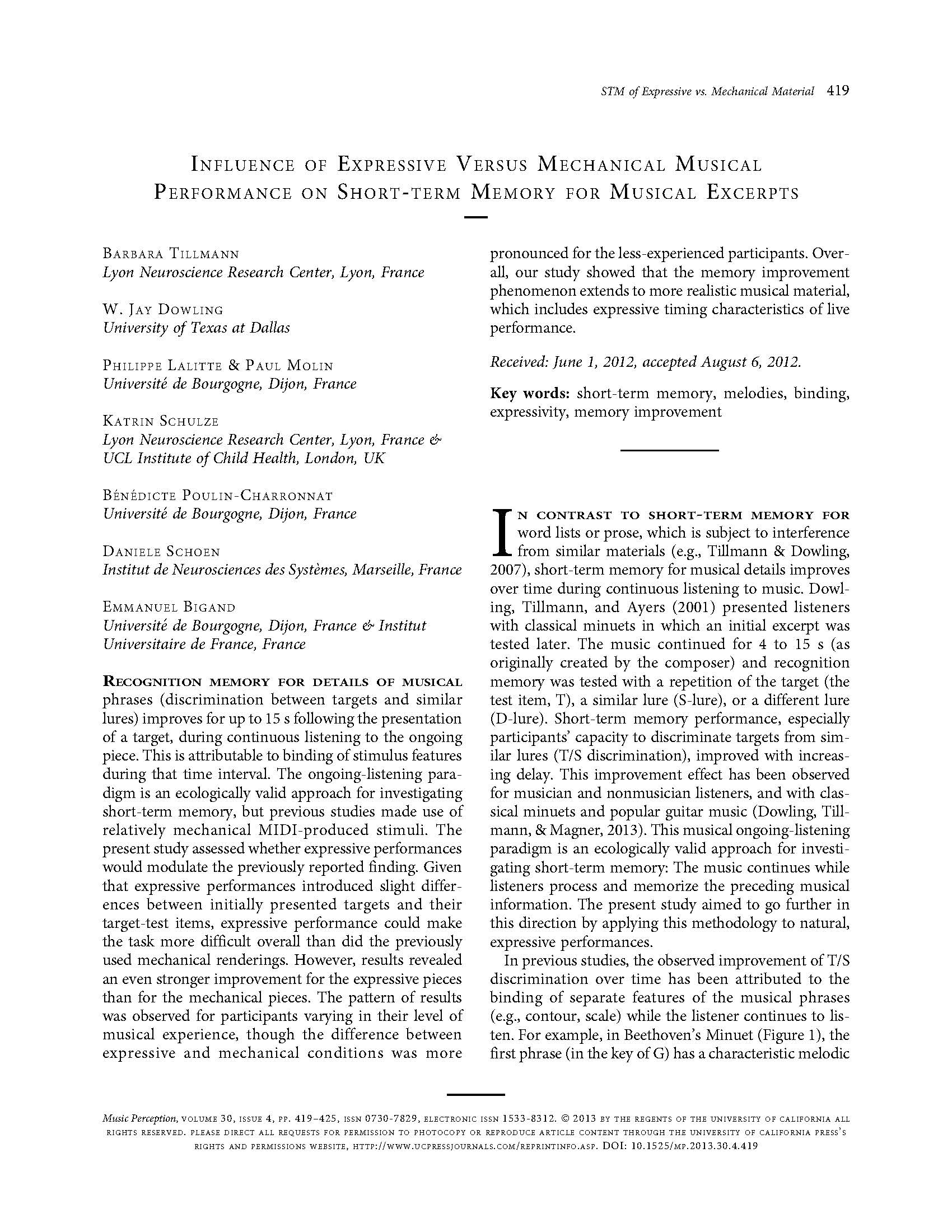Recognition memory for details of musical phrases (discrimination between targets and similar lures) improves for up to 15 s following the presentation of a target, during continuous listening to the ongoing piece. This is attributable to binding of stimulus features during that time interval. The ongoing-listening paradigm is an ecologically valid approach for investigating short-term memory, but previous studies made use of relatively mechanical MIDI-produced stimuli. The present study assessed whether expressive performances would modulate the previously reported finding. Given that expressive performances introduced slight differences between initially presented targets and their target-test items, expressive performance could make the task more difficult overall than did the previously used mechanical renderings. However, results revealed an even stronger improvement for the expressive pieces than for the mechanical pieces. The pattern of results was observed for participants varying in their level of musical experience, though the difference between expressive and mechanical conditions was more pronounced for the less-experienced participants. Overall, our study showed that the memory improvement phenomenon extends to more realistic musical material, which includes expressive timing characteristics of live performance.
Influence of expressive versus mechanical musical performance on short-term memory for musical excerpts
